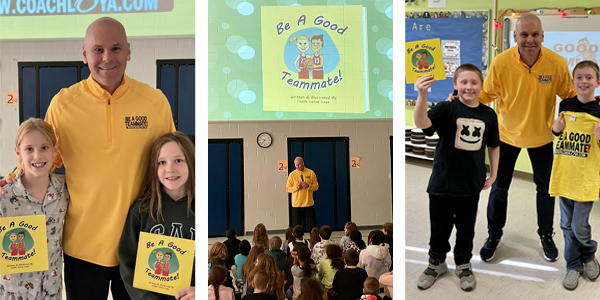Leaders often complain about jealousy upending their teams’ chemistry. Someone on the team has achieved something that another team member covets. The feelings brought on by this scenario prevent the team from attaining a level of connectedness conducive to team success.
Surprisingly, I have seen mimicry upend just as many teams as jealousy.
Mimicry is when someone on the team copies something that another team member is doing. It could be a fashion style, strategy, or technique that has given the person being copied a unique identity and individual success.
Mimicry can cause the person being copied to feel angry, frustrated, and resentful—the same disruptive feelings brought on by jealousy.
Whenever I hear of someone struggling with mimicry, I am reminded of an experience I had in middle school.
My fifth-grade teacher, Mr. Mueller, was wonderfully creative. He utilized outside-the-box activities to teach his students useful life skills. Among my favorites was a public speaking project where he divided the class into small groups to be radio broadcast teams.
One student in each group was assigned to read the news headlines. Others were assigned jobs like giving the local weather, producing a commercial, and announcing the release of a new song. In my group, I was tasked with doing the sports report.
Mr. Mueller had us do a practice “broadcast” the day before we presented our final assignment. My group was the last to go that day. When I read the sports report, I did so by imitating Howard Cosell—a popular sportscaster at the time.
 After I finished, the classroom was silent. Nobody else had done anything like that during their broadcast. They had all just used their regular voices.
After I finished, the classroom was silent. Nobody else had done anything like that during their broadcast. They had all just used their regular voices.
I looked at Mr. Mueller, fearful that I had done something wrong. But Mr. Mueller was smiling. He jotted down a few notes and then turned to me and said, “Nice job, buddy.”
The next day, everybody in the class used some form of an alternative voice when they presented their final projects with every sports report done in a Howard Cosell-esque voice. The imitations had become tiresome by the time it was my group’s turn to present, especially for our teacher.
I felt conflicted. Should I do the Howard Cosell voice again now that everyone had done it? I suspect Mr. Mueller sensed my apprehension. His face conveyed an expression of curiosity, as if to say “Well, how are you going to handle this?”
I paused, thought about what to do, and then proceeded in my normal voice: “Often imitated, but never duplicated, this is the sports report with the one and only Lance Loya…”
When I finished, I looked at Mr. Mueller, who was smiling. He again jotted down a few notes before turning to me and saying, “Nice job, buddy.”
I have never forgotten the lesson I learned that day in Mr. Mueller’s class: Mimicry is good.
Imitation truly is the sincerest form of flattery. Not only that but being copied keeps you from plateauing. Mimicry compels innovation by forcing you out of your comfort zone.
If you’re being copied by someone on your team, view it as a blessing instead of a burden. Adopting this mindset will lead to continued growth for you and your team—far more productive outcomes than anger, frustration, and resentment.
By the way…

Teachers who utilize creativity in their teaching repertoire are amazing. I spent a lot of time sharing the good teammate message at elementary schools last week for Read Across America events.
I was moved by the creativity I saw on display at those schools. It made me realize how fortunate I was to have had a teacher like Mr. Mueller.
If you’re an educational leader, parent, or student who has encountered a “Mr. Mueller” in your life, be sure to tell them “Nice job, buddy.”
And Mr. Mueller, wherever you are, thank you for teaching me such an invaluable lesson.
As always…Good teammates care. Good teammates share. Good teammates listen. Go be a good teammate.





